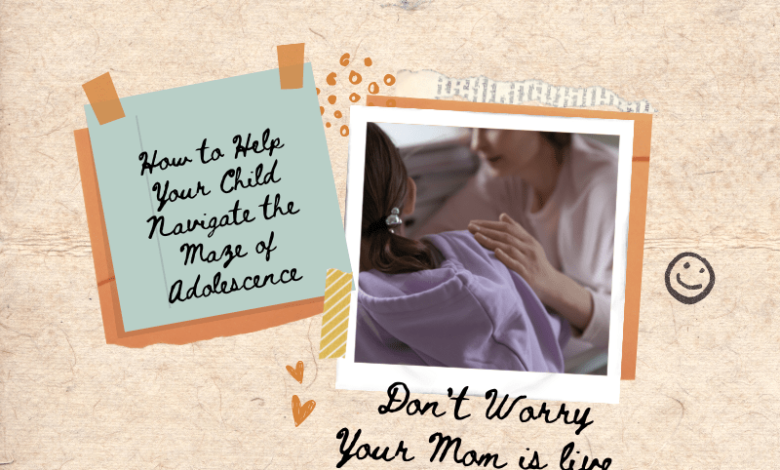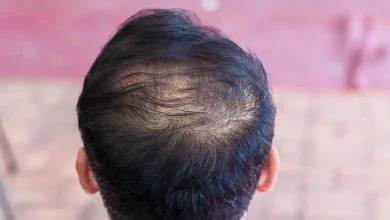How to Help Your Child Navigate the Maze of Adolescence

Close your eyes and reimagine your teen years for a moment. Think about the parties with friends and the pep rallies before football or basketball games. Recall sleepovers with movie marathons and snoozing until noon on weekends. Your teen years were great, right?
Hold on a second. There’s a good chance you’re forgetting a few things. Don’t overlook the zits that lingered and drove you nuts. What about all those times you had to turn down cigarettes or alcohol? There were plenty of weeks when you were stressed out over schoolwork, too.
Yep, the teen years can be awesome, but they’re also filled with plenty of obstacles. As a parent now, you’re probably watching your kid go through some of the same trials and tribulations. Luckily, there are ways you can help them navigate the messy maze of teendom. These six topics are bound to come up, so keep reading to be prepared for the conversation.
1. Address the Acne
It’s the rare teen who makes it out of adolescence without at least a few pimples. Chances are your kid is going to struggle with their reflection in the mirror. If they’re embarrassed or angry about their acne, you can help. The best piece of advice you can give them is to stay hands-off. No popping pimples — it only makes breakouts worse and leads to scarring.
If over-the-counter products don’t work for your teen, seek out prescription acne treatment. Have a healthcare provider assess their acne — you can even do it online. A professional can tell whether a topical or oral medication will be best. Once you have the right prescription in hand, encourage your child to use it consistently for the best results.
2. Push Away the Peer Pressure
Fitting in is a major concern during the teen years. Wanting to be part of the group can make your kid vulnerable to peer pressure. Feeling left out can be the worst, but going along with the group isn’t always the best thing. Don’t stress — you can teach your kid how to handle these social pushes in the wrong direction.
Let your teen know that if something feels wrong, it’s OK to disagree with their friends. Teach them how to set limits and how to say no in a polite, strong way. For example, it may be more effective to say cigarette smoke nauseates them than to say, “I don’t want to.” You can also help them avoid a lot of peer pressure by encouraging them to find like-minded friends.
3. Ward Off Vaping
E-cigarettes are a huge problem with teens. Currently, around 20% of high school students vape. These devices use different flavored liquids, so they’re more popular than regular cigarettes. Lots of kids also believe the myth that vaping is far safer than regular smoking.
Here’s a bit of what your child needs to know. Even at their age, vaping drastically increases their risk for having a heart attack or stroke. Unlike smoking, the chemicals are absorbed directly into their bloodstream. That makes it harder for their heart to pump blood and blood clots more likely. In short, vaping is just as bad for their health, if not worse than, smoking.
4. Have the Sex Talk
Discussing sex with your teen doesn’t have to be an uncomfortable conversation. Sex is a normal part of life, but it also presents a lot of mystery. Creating an open environment for your kid to ask questions helps them make healthy decisions now and later in life.
The most important thing is to be open, honest, and direct when you talk. Explain to your teen that they shouldn’t have sex if they don’t want to. No amount of pressure is OK.
Discuss the risks of pregnancy or sexually transmitted infections. If they’re considering having sex or are already sexually active, bring up birth control options — pronto. No matter what, let your teen know they can come to you with questions or concerns.
5. Discuss Drugs and Alcohol
If you went to parties as a teenager, you already know these get-togethers can be playgrounds of substance consumption. Drugs and alcohol are frequently part of the festivities, and things can sometimes get out of hand. So it’s important to talk with your kid about all of it long before they receive a party invite.
Resist issuing blanket prohibitions about drinking and drugs and emphasize safety instead. Let them know in no uncertain terms that their well-being is paramount. If they get drunk or high at a party, they can call you at any time to be picked up.
That said, inform them that alcohol and drugs can lower their inhibitions, and they may do things they’ll regret later. Give your child an opportunity to ask questions. If you decide to share your experiences with drinking or drugs as a teen, be honest without making your past seem glamorous.
Also Read: 12 Facts You Should Know About Alcohol Abuse
6. Tackle the Anxiety
Even though most teens aren’t responsible for any major financial or family obligations yet, they still carry pressure on their shoulders. Maybe they need to graduate in the top 5% or lead the basketball team in three-pointers to secure a college scholarship. Perhaps they’re just stressed about whether their friends really like them. Whatever the source of their anxiety, it’s real.
No matter what, don’t dismiss their concerns. Your teen’s problems are just as important to them as yours are to you. Encourage your child to talk about their feelings instead and let them know their emotions are normal. Putting words around big issues can sometimes make them feel less overwhelming.
If you can, spend more time together so your teen feels supported. Work in some relaxation and be sure your teen is eating well and sleeping enough. Keep an eye out for their caffeine intake, too, because a lot of it can boost their anxiety. Suggest they keep the sodas and coffee to a minimum.
The teen years should be the fun, nearly carefree days of life. Still, they do come with their own set of challenges. Fortunately, you’ve been through it all before. If you brush up on these six topics, you can help your child with whatever problems they’re facing.









